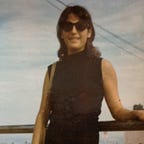Life as fiction
Irwin Shaw once likened writing to the contact sport of football. The effort can be exhausting, the goal unreached, and you are hurt on almost every play; but that doesn’t deprive you from getting pleasure from the game.*
Novelist, short-story writer, screenwriter, playwright. Irwin Shaw wrote sweeping tales of human frailty, the bitterness of war, the power of money. He filled his plot-driven stories with loners, swindlers, murderers, communists, war heroes, ex-football players, dueling brothers, and beautiful women.
“I am a product of my times,” he wrote. War, the Great Depression, Roosevelt, Prohibition, McCarthyism, Kennedy — “[all] of these things, in one way or another, are reflected in my stories.”*
Born in the Bronx on February 27, 1913, Irwin Gilbert Shamforoff grew up in Brooklyn, the oldest of two boys. His father was a salesman, his mother was a homemaker. From an early age, Shaw wanted to be a writer. Athletic, he played baseball at the local schoolyard and football in high school. He skipped grades, entering junior high at age ten and graduating from high school at fifteen. His academic achievement earned him a seat at the tuition-free Brooklyn College; but he was forced to leave, in 1929, when he failed freshman calculus.
With the deepening Depression, and his father out of work, Shaw took a sixteen-dollar-a-week job in a furniture warehouse. When he wasn’t sweeping floors and unpacking crates, he studied the works of Balzac, Chekhov, Tolstoy, Keats, Huxley, Fitzgerald, Hemingway. Readmitted to Brooklyn College in 1930, he graduated two weeks before turning twenty-one. While in college, he played varsity football and wrote plays and short stories. His literary career rose rapidly, beginning in 1934 when he was hired to write radio scripts. “I pushed Dick Tracy into situations and rescued him five times a week,” he told The Paris Review.** He was twenty-three when his first published play, Bury the Dead, was staged on Broadway to critical acclaim. That same year, he wrote his first Hollywood movie script, The Big Game, and saw his first published short story, “Flash in the Pan.”
Between 1936 and 1982, Shaw wrote twelve novels, eighty-four short stories, fifteen screenplays, two books of nonfiction, and a long list of stage plays. He published eight short-story collections, including God Was Here But He Left Early (1977). He wrote “The Eighty-Yard Run” (1941), originally published in Esquire magazine, a story about an aging football player looking back on his life. He put his World War II experience in his novel The Young Lions (1948). In The Troubled Air (1951), he wrote about the Hollywood blacklists of the 1950s. His close encounter with death, during surgery in 1981, haunts Acceptable Losses (1982).
His books have been published in twenty-five languages, including Icelandic and Macedonian.+
Interviewed in 1983 by The New York Times, just shy of his seventieth birthday, Shaw reflected on his five decades of writing. “I think I’ve become more generous in my views. When you’re young, you look at things directly. Now I have peripheral vision. I’m still trying to write clearly, and amusingly, without pretension, and avoiding rhetoric for its own sake, though I admire it in others when it comes off…And I’m about to begin on my next novel. I have the idea and the title, but I’m trying to work out the form.”+
A year later, he was gone.
Source
Irwin Shaw’s life and career from Irwin Shaw: A Biography. © Michael Shnayerson. 1989. G. P. Putnam’s Sons. Pages 21–49, 112–113.
*From the introduction to Irwin Shaw Short Stories: Five Decades. © Irwin Shaw. Dell Publishing Co., Inc., January 1983.
**The Paris Review. Interview with Irwin Shaw, conducted by George Plimpton and John Phillips. Winter 1953. https://www.theparisreview.org/interviews/5157/the-art-of-fiction-no-4-irwin-shaw
+Interview with The New York Times, February 17, 1983. Written by Herbert Mitgang. https://www.nytimes.com/1983/02/17/books/irwin-shaw-near-70-adds-it-up-and-feels-right.html
